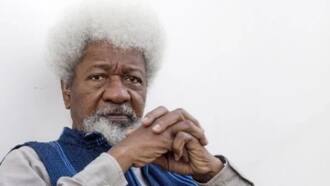Tiv culture in Nigeria
For some people, Tiv culture is a true discovery, even if they are from Nigeria. Not everybody really knows much about this ethnic group, its traditions and culture. Still, they are worth learning, as well as the history of these people and their talent for dancing. Let’s take a brief excursion into the exciting world of the Tiv together!

Image source: pulse.ng
What is the Tiv ethnic group in Nigeria and the roots of its culture?
Belonging to the Tiv ethnic group is not only the being a part of a certain tribe or a clan. It’s also having a separate language and a culture that dives its roots into centuries deep. Sometimes, the Tiv people are also called Munchi (a name given to them by the Fulani during the precolonial times), yet, they don’t like the name at all and don’t accept it now.
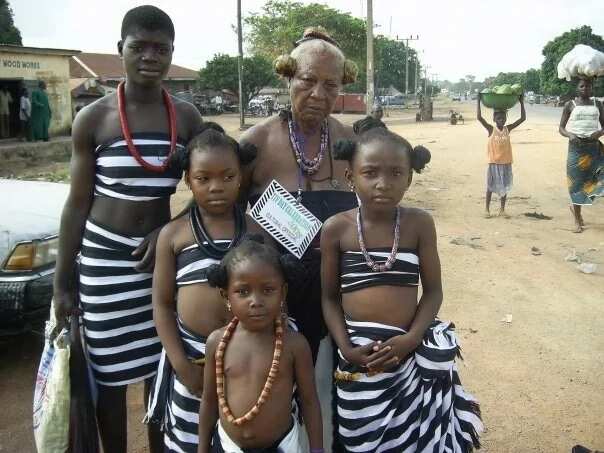
Image source: wikipedia.org
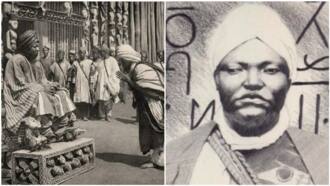
Read also
This was the man who developed African writing system which the colonial masters destroyed (photos)
READ ALSO: Tiv names and meaning for baby boy and girl
Just as any ancient group of people, there was a separate Tiv culture and traditions that bore no influence from any foreigners. With time, of course, they encountered other tribes and started contacts with them but all this never had as much influence as contacts with Europeans, the British in particular.
Between 1907 and 1908, the British people came into a very close, probably, the closest contact with the tribe with rich gifts. This was a beginning of friendly relations and new roads were built.
The new roads opened access for foreign traders and this, eventually, brought a new influence on the authentic culture of the Tiv. In addition to this, even before the idea of the roads, even before the start of the works, there was a missionary who brought Christianity to these lands.
The traditional Tiv attire as a part of Tiv culture
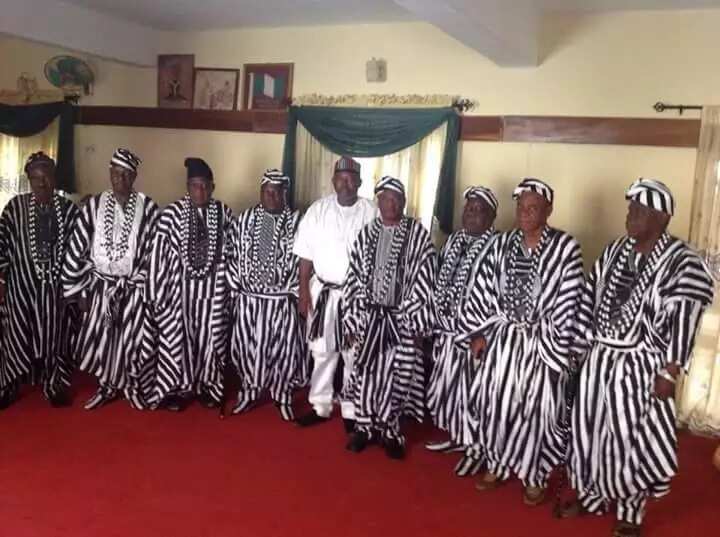
Image source: wikipedia.org
In accordance with what the Tiv themselves say, they came to their present location from the southeastern lands. The legends have it that the Tiv people used to wander for a long time until they reached the savannah lands in the area of Sudan and Cameroon.
When they reached their final destination, they found out that there were no zebras – the animals Tiv cherished a lot for their meat and bright black and white skins. It took them some time to acquire the skill of looming and finally they started creating ceremonial attires with black and white stripes. At that time, their garments were quite simple, looking like a piece of cloth wrapped or draped on their torsos.
Today, the elaborate robes and diverse styles distinguish Tiv chiefs and honorable ones. Yet, the most beloved fabric is still the same – with black and white stripes. They also have black and white beads worn by their rulers and call their traditional attire “Anger”.
Tiv marriage

Image source: pulse.ng
The Tiv people have specific marriage rites that seem to be one of the most interesting things to foreigners and strangers. It’s curious and notable that all these rites are still alive and used by Tiv people who want to get married.
There are four methods of getting oneself a wife and here they are:
- Getting married by exchange
This means exactly what this means. Two men who want to have a wife meet and agree to exchange the women they already have. These may be each other’s daughters or each other’s current wives. This way of getting married is called yamshe. Of course, the deal will be sealed only if both of them have women suitable for the exchange.

Image source: pulse.ng
READ ALSO: 7 facts about the Tor Tiv of Benue state
- Getting married by capture
This way of getting married is called kwase-ngohol. It means capturing another man’s wife while her husband is away. This is one of the most traditional ways of getting oneself a wife dating back to the times when the tribe was migrating all the time. Actually, this habit of stealing other men’s wives caused a range of wars and confrontations within the ethnic group.
However, there’s another way of "capturing wives". This is a far nobler way that’s respected a lot, unlike the described above. A man needs to go to another country and take his friends with him. The entire group chooses communities where they are going to look for single unmarried women. Then, they go to those communities and start to perform traditional dances in the eyes of the chosen women.
The women are naturally attracted to the skilled dancers and go out to watch them. Such a way of capturing women’s hearts is called lye. As a rule, the chosen women agree to go with the dancers and become their wives. This is a romantic and sweet way and many women love it sincerely.

Image source: sugarweddings.com
- Getting married by purchase
Everything you need to do is capture a girl as a slave and get married to her. That’s it, nothing complicated as it looks. However, this is the way that’s not as popular as it used to be hundreds of years ago. Today, the Tiv use more civilized ways of getting married.
- Getting married by paying a bride price
First, a man needs to send plenty of gifts to the family of the bride. The gifts are being sent until the family says that they are finally satisfied. When they are, the groom can finally get down to paying the bride’s own price.
This is the prevailing way of getting married in the modern Tiv lands. However, in most cases, young people don’t start with paying the bride price off. Now, it’s allowed that they stayed together as a couple for a while and then decided to pay the bride price or not.
What about Tiv cultural dance and songs?
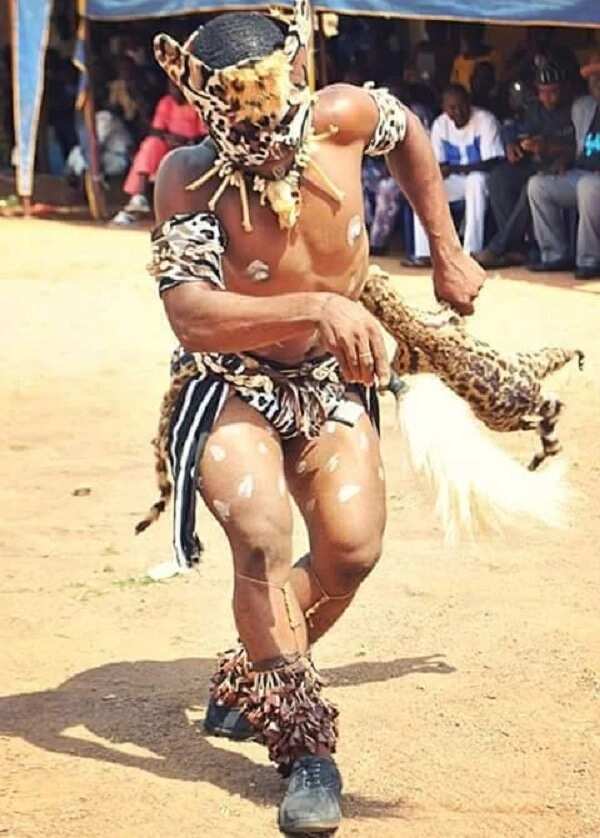
Image source: wikipedia.com
In the Tiv culture, music and dancing are a certain specific form of communication. They have a range of unique musical instruments, which they skillfully play, and a number of lovely dances, which they perform for different occasions. There are dances that attract sweethearts, there are ancient ritual dances, and modern ones that are performed at diverse festive occasions.
Songs are still an effective means of communication between people and between people and the nature. The Tiv still believe in rainmakers and their powers, in the strength of herbalists and wizards of all types. All this influences their life greatly and implies the appearance of new habits and customs, new songs and dances.
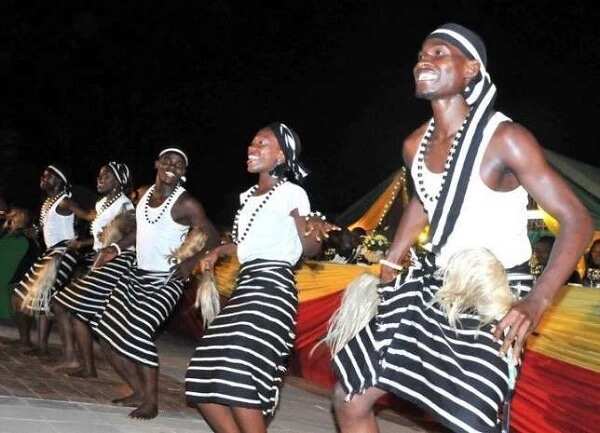
Image source: pulse.ng
The dances and songs are closely connected to the beliefs of the Tiv tribe. In spite of the fact that their ancestors have been Christianized successfully and that a part of the people accepted Islam, they do believe in the human ability to manipulate natural forces. If something happens like an epidemic disease, the ones who can rule these powers go outside at night and perform ancient rituals to repair the damage.
Tiv food as a cultural experience

Image source: depositphotos.com
The Tiv people are said to be big lovers of yam. They have plenty of meals cooked with yam – boiled, baked, roasted, everything. They eat it in the morning and as a late evening meal. The roasted yam is always seasoned with red palm oil and only a bit of salt. The Tiv yam retains its natural taste in most cases. It’s also roasted with its skin and peeled only when it gets into your plate.
If you enter a Tiv home, they will welcome you with some soup and yam. When it comes to eating, the Tiv people are known as the ones who will never refuse to help themselves. When they are done eating, they will thank you with the words “U yôô”. It means “You have cooked” and replaces usual thanks.
Who are those Tiv notable people in Nigeria?

Image source: wikipedia.org
The Tiv people has given Nigeria a range of really notable people. Politicians, sportsmen, etc.
Joseph Tarka, a human right activist, Samuel Ortom, current governor of Benue State; football players - Terna Suswam, Dominic Iorfa, David Tyavkasse; Super Eagles striker, Barnabas Imenger and many more.
READ ALSO: History of Nigeria before independence: 10 facts you should know
Source: Legit.ng






